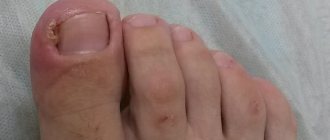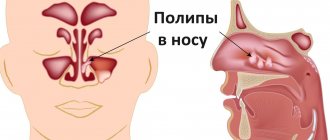22.04.2017
Sleep disturbance is a fairly common problem. Frequent complaints of poor sleep are made by 8-15% of the adult population of our planet, and 9-11% use various sleeping pills. This figure is even higher among older people. Sleep disturbances can occur at any age, and each age category has its own problems. There are sleep disorders that begin in childhood and do not leave a person throughout his life, for example, narcolepsy.
Sleep disturbance can be primary, which is not associated with organ pathology, or secondary, resulting from other diseases. Sleep disorders occur as a result of various diseases of the central nervous system or mental disorders. A number of somatic diseases cause insomnia in patients under the influence of shortness of breath, pain, angina attacks, cough or arrhythmia, frequent urination, itching, etc. Intoxication of various origins, including in patients with oncology, causes drowsiness. Sleep problems that are pathological in nature can develop due to hormonal abnormalities, for example, during pathology of the hypothalamic mesencephalic region (tumor, epidemic encephalitis, etc.).
What is insomnia?
Insomnia is the most common sleep disorder that patients complain to their doctor about. It determines both the quality of the night spent and the quality of the next day. Insomnia is a disruption of normal sleep patterns that impairs quality of life . With insomnia, the following are possible:
difficulty falling asleep ( sleep disorder ),
difficulty sleeping through the night without waking up ( sleep maintenance disorder ),
waking up too early in the morning ( morning insomnia ).
Insomnia is characterized by difficulty sleeping at night. But it affects not only the night: severe insomnia at night - drowsiness during the day. Insufficient or poor quality sleep can lead to fatigue, poor concentration, memory loss or decreased work efficiency, and even traffic accidents. Long-term sleep problems can, among other things, influence the development of obesity, diabetes and a compromised immune system. Insomnia must be treated.
DO YOU KNOW?
Even while we sleep, our brain works and plays an important role in eliminating toxins, processing information, strengthening memory, learning and other higher brain functions.
Primary vs Secondary Insomnia
When a person has trouble sleeping that is not associated with any other health problem, it is called primary insomnia.
Secondary insomnia occurs when sleep problems are initially caused by something else, such as illness
(depression, heartburn, asthma, arthritis, dementia),
pain, taking medications
or certain substances (alcohol, caffeine).
Only a doctor can select effective remedies and methods for treating insomnia; traditional recipes for insomnia can only make it worse.
Acute vs Chronic insomnia
According to the duration of the process, insomnia is divided into acute or chronic. Sometimes acute insomnia is caused by a specific problem (such as a stressful life event or illness). When a person has trouble sleeping at least three times a week for at least three months, we are talking about chronic insomnia. In this case, people, as a rule, are very worried about their sleep and try to get rid of insomnia at least at home.
Diagnosis of sleep disorders
The most common way to study sleep disorders is polysomnography. This examination is carried out by a somnologist in a specialized laboratory where the patient spends the night. While the patient is sleeping, various sensors simultaneously record the bioelectrical activity of the brain (EEG), cardiac activity (ECG), respiratory actions of the anterior abdominal wall and chest, air flow that is inhaled and exhaled, oxygen saturation of the blood, etc. Everything that happens in the ward is filmed and a doctor is on duty. Thanks to this examination, it is possible to examine the state of brain activity and the functioning of the main body systems during each five stages of sleep, identify deviations and find the cause of disturbed sleep. Another way to diagnose sleep disorders is to study average sleep latency (ASL). It is used in identifying the causes of drowsiness and plays an important role in the diagnosis of narcolepsy. The study includes five attempts to fall asleep, which are carried out while awake. Each attempt is given 20 minutes, the interval between these attempts is two hours. Average sleep latency is the time it takes for a patient to fall asleep. When it is more than 10 minutes, this is normal, from 10 to 5 minutes is a borderline indicator, less than 5 minutes already indicates pathological drowsiness.
Symptoms of insomnia
If you take the entire population, then a third of them will find at least one symptom of insomnia. Women suffer from insomnia twice as often as men. The causes of insomnia may differ between men and women. Insomnia is also age-related: it is very rare in childhood, sometimes in teenagers, but is becoming more common among adults and older people.
Symptoms of insomnia occur at night, but its consequences can occur the next day. People who complain of insomnia say they have difficulty falling asleep in the evening, wake up frequently during the night, or wake up too early in the morning. Such sleep does not help restore strength or the quality of sleep is very poor. Of course, in this case, the main desire of a person is to wake up rested, but in the case of a sleepless night, people get tired and suffer.
Symptoms that may appear the next day:
lack of energy and motivation, which leads to difficulty making decisions
problems with memory and concentration
anxiety
irritability or mood swings that lead to problems in family and social life
daytime sleepiness
behavioral problems (eg, impulsivity, aggression)
apathy or fatigue
constant thoughts about sleep and a feeling of dissatisfaction from this
in addition, muscle tension, headaches, and digestive problems are possible
How to get rid of insomnia using folk remedies? You must first understand where it came from, and only a doctor can say for sure. Fighting insomnia at home is often simply unrealistic; don’t delay going to the doctor.
DID YOU KNOW?
Epidemiological studies have found that a third of European adults have experienced one or more symptoms of insomnia, and 10–15% of respondents noted that severe insomnia interferes with the normal functioning of the next day.
Description of the disease
Insomnia according to ICD 10 corresponds to code F51. According to the flow, insomnia is classified as:
- Transitional. Lasts about 7 days, often resolves against the background of severe depression;
- Spicy. In this case, a person has problems with sleep from 7 days to 1 month. This type of illness is combined with stress;
- Chronic. It lasts more than 1 month and occurs against the background of dysfunction of other organs, usually as a result of a failure of the hormonal system.
Sleep is an important component for maintaining normal body functions. Therefore, if sleep problems are left untreated, a number of complications arise:
- Obesity;
- Depression;
- Neuroses, GAD;
- Decreased learning ability, absent-mindedness;
- Decreased performance, drowsiness;
- Weakening the function of the immune system;
- The risk of developing chronic diseases of the gastrointestinal tract, cardiovascular and endocrine systems.
At the Yusupov Hospital, insomnia is treated using various modern methods: from medications to cognitive behavioral therapy.
Ten provocateurs-causes of insomnia and how to deal with them
Now let's talk about factors that interfere with healthy sleep and can provoke insomnia.
Night trips to the toilet
This is one of the most common reasons that prevents you from sleeping at night. Night trips to the toilet can be associated with many factors. From drinking too much before bed, the effects of taking medications and pregnancy, to various health problems such as prostatitis, urinary tract infections, chronic diseases, etc. If this happens regularly, then you should definitely contact a urologist, he will eliminate the possible causes of insomnia in men.
Hormonal changes
Very common causes of insomnia in women are menstruation, pregnancy, menopause... all of these stages can make hormone levels unstable, and along with them, disrupt sleep and cause insomnia. Sleep patterns may be disrupted by hot flashes and increased sweating, breast tenderness and frequent urination. One possible option is to wear sleepwear that absorbs sweat well, thereby solving the problem of night sweats. Here, to treat insomnia, you need to equalize hormonal levels.
Anxiety
This is one of the most common causes of poor sleep at night. Insomnia with depression and neurosis is, alas, commonplace. During the day, your brain is busy with various events, but at night, when you slow down and have nothing to distract you from your thoughts, stress and anxiety keep you awake. And the more you concentrate on the problem, the longer it is impossible to fall asleep. How to overcome such insomnia? Try KRKA's breathing exercises or read a book just to keep your mind occupied and away from stress and anxiety.
Environment
Too bright, too noisy, too cold, too hot... Bedroom conditions have a bigger impact on your sleep than you think. Some people say that the optimal temperature in the bedroom ranges from 16° C to 20° C. It is easy to get rid of this cause of insomnia at home. Heavy, stale air in the room also causes problems with sleep, so immediately before going to bed, make sure that the room is well ventilated and there is access to fresh air.
Food and drink
Caffeine, sweets, fatty or spicy foods can all cause awakening in the middle of the night. Insomnia after alcohol is also common. Late night snacking causes fluctuations in blood sugar levels, which can lead to sleep problems. Therefore, instead of greasy pancakes, eat something light a few hours before bed, this will help overcome such insomnia.
Sleeping with your phone
The blue spectrum of light emitted by screens disrupts the circadian rhythm, making it difficult to fall asleep and stay asleep. You've probably already noticed: you go to bed feeling really sleepy, then you turn on your phone just to check a few things, and the sleepiness immediately goes away. How to fall asleep if you suffer from insomnia? Remove the means of communication first! For a good night's sleep, try to avoid all electronic devices that emit blue light in the bedroom. But if you really can't give them up, turn on the Night Mode feature, which reduces blue light, or use any other similar app.
Pain
From back pain, headaches to chronic pain, any pain can cause you to lose sleep. How to deal with such insomnia? Try to help yourself with a warm shower or heating pads, but if all else fails, do not hesitate to consult a doctor.
Jet lag - time zone change
Rapid change of time zones affects biological rhythms. It always takes time for the body to adapt to a new day and night schedule. Regularly moving across different time zones can cause chronic sleep problems. What helps with such insomnia? Consultation with a competent specialist who will select the optimal daily regimen and supporting medications. It is impossible to get rid of such insomnia at home on your own.
Snore
Maybe you snore, or maybe your partner. The latter is especially difficult if you are a light sleeper. Co-sleeping can be a real challenge, especially at the beginning of a relationship. In any case, to avoid waking up at night, try to find the cause of your snoring. Here you need to treat insomnia comprehensively, consult a therapist. Keep in mind that in some cases, snoring is a symptom of sleep apnea, a disorder associated with other serious medical conditions.
Shift work
Shift work can disrupt your circadian rhythm and cause sleep problems. What helps with such insomnia? A few tips: try to create as regular a sleep-wake schedule as possible, make sure you use blackout curtains to completely block out daylight in the bedroom, limit caffeine intake, calls, and the likelihood of guests while you sleep.
Regardless of the reason, the fact remains that sleep is interrupted and with it its quality is lost. Constantly waking up and falling asleep makes you feel like you haven't slept even an hour during the night, and morning exhaustion is monstrous. How to deal with insomnia in this case? Just make sure you're aware of all the things that keep you up at night and take preventative measures to prevent it from happening again the next night.
Classification of sleep disorders
1. Insomnia is insomnia, a disturbance in the process of falling asleep and staying asleep.
- Psychological refers to a psychological state and can be situational (temporary) or permanent.
- As a result of taking alcohol or taking medications:
1. chronic alcoholism;
2. prolonged use of drugs that activate or depress the central nervous system;
3. withdrawal syndrome from sleeping pills, sedatives or other drugs;
- Resulting from a mental illness
- Appearing as a result of breathing disorder during sleep:
1. syndrome of decreased alveolar ventilation;
2. sleep apnea syndrome;
- As a result of restless legs syndrome or nocturnal myoclonus
- As a result of other pathological conditions
2. Hypersomnia, which is increased sleepiness
- Psychophysiological, which is associated with the psychological sphere, can be permanent or temporary
- As a result of taking alcohol or taking medications;
- As a result of mental illness;
- As a result of various breathing disorders during sleep;
- Narcolepsy
- As a result of other pathological conditions
3. Incorrect wakefulness and sleep patterns
- Temporary sleep disturbances associated with a sudden change in work schedule or time zone
- Systematic sleep disorders:
1. slow sleep syndrome
2. premature sleep syndrome
3. syndrome in which there is no 24-hour sleep-wake cycle
4. Parasomnia, which is characterized by impaired functioning of systems and organs associated with sleep or awakening:
- somnambulism;
- enuresis;
- night terrors;
- nocturnal epileptic seizures;
- other disorders
How much sleep do you need and what are the consequences of lack of sleep?
Normally, an adult needs seven to nine hours of sleep a night. For some, six is enough, but this is rather an exception to the rule. A decrease in the quality or duration of night sleep leads to disruptions in the functioning of almost all organs and systems of the body. Let's look at some of the effects of insomnia.
Nervous system
It is quite obvious that when she suffers from insomnia, she is the first to suffer.
During sleep, pathways form between nerve cells in the brain that help you remember new information. Insomnia causes the brain to be unable to perform its duties normally. It becomes difficult to concentrate or learn something new. Signals sent by the body may be delayed, reducing coordination skills and increasing the risk of accidents.
Insomnia negatively affects mental abilities and emotional state. The person becomes more impatient or prone to mood swings. This compromises decision-making processes and creativity. If you do not get rid of insomnia in time, hallucinations may begin. Other psychological risks: impulsive behavior, depression, suicidal thoughts.
DO YOU KNOW?
There is such a concept - “micro-sleep” - in a state of exhaustion due to lack of sleep, a person falls asleep for just a few seconds, but these few seconds, for example, while driving, can cost one’s life. With insomnia, this condition very often occurs suddenly and cannot be controlled.
The immune system
While you sleep, the immune system works - it produces special protective substances that fight infections - bacteria and viruses. Insomnia prevents the immune system from building its strength. If you don't get enough sleep, your body doesn't have enough strength to fight. This is why people suffering from insomnia take much longer to recover because the consequences of insomnia hit them hard.
Respiratory system
The connection between quality sleep and the respiratory system is very close. Sleep apnea (sleep breathing disorder) interrupts sleep and reduces its quality. When you're up all night, sleep deprivation sets in, leaving your body vulnerable to respiratory infections like colds and flu. If left untreated, insomnia can worsen existing respiratory conditions.
Digestive system
Along with overeating and lack of exercise, insomnia is another risk factor for overweight and obesity. Sleep affects the levels of hormones that control feelings of hunger and fullness. There is such a hormone - leptin. It tells the brain that you are full. Without enough sleep, your brain lowers leptin levels and increases levels of another hormone, ghrelin, which stimulates appetite. The action of these hormones can explain late-night snacking or a heavy late-night dinner. Insomnia may leave you with no energy to exercise; without sleep, fatigue becomes your companion. What helps with such insomnia? A healthy diet and healthy lifestyle.
The cardiovascular system
Sleep affects processes that support heart and blood vessel function, blood sugar levels, and blood pressure. It also plays a vital role in the body's ability to repair blood vessels and the heart. People who don't get enough sleep are more likely to suffer from cardiovascular disease.
Endocrine system
Hormone production is dependent on sleep. For example, testosterone production requires at least three hours of uninterrupted sleep. Waking up in the middle of the night affects hormone production. This is critical for children and adolescents—interruption of sleep can affect the production of growth hormones. They help build muscle mass and repair cells and tissues. The pituitary gland continuously releases growth hormones, but sleep and exercise also promote the release of this hormone.
DO YOU KNOW?
Lack of sleep can negatively affect your critical attitude to current events. Insomnia at night means sleepiness during the day, and this significantly impairs the ability to make sound judgments. In such a state, a person simply cannot adequately assess the situation and act wisely.
What to do if you have insomnia? Consult a doctor, especially if you experience insomnia due to depression! People who have been deprived of normal sleep for long periods of time tend to misjudge what their lack of sleep is doing to them. In a fast-paced world, working on less sleep has become a source of pride. But sleep experts disagree - if a person thinks that he sleeps less and everything is fine, he is mistaken. Insomnia must be treated by a professional; folk remedies for insomnia can only make it worse.
Treatment
Depending on the cause of the sleep disorder, treatment is prescribed by a neurologist. In case of somatic pathology, therapy is directed to the underlying disease. The reduction in sleep depth, as well as its duration, which occurs in older people, is a natural process and often only requires explanatory consultation with the patient. Before resorting to sleeping pills, it is recommended to monitor compliance with the basic principles of healthy sleep: do not go to bed in a state of agitation or anger, do not eat before bed, do not drink alcoholic beverages, strong tea, coffee at night, do not fall asleep during the day, do not forget about exercise exercise, but do not exercise at night, keep the bedroom clean. Patients who have sleep disturbances are advised to go to bed and wake up at the same time every day. If you can’t fall asleep within 30-40 minutes, you need to get up and keep yourself busy until sleep appears. Evening relaxing treatments will be useful: a warm bath or a walk. Psychotherapy and various calming techniques often help solve problems of disturbed sleep.
In the drug treatment of sleep disorders, benzodiazeline drugs are often used. Tablets with a short period of action - triazolam, midazolam - are prescribed when the process of falling asleep is disrupted. However, their use is often accompanied by adverse reactions: confusion, agitation, morning sleep disturbance, amnesia. Long-acting sleeping pills - diazelam, chlordiazepoxide, flurazelam - are used for frequent night or early morning awakenings. But they often cause daytime sleepiness. In such situations, they resort to drugs with an intermediate period of effect - zolpidem and zopiclone. These drugs have a lower risk of developing dependence or tolerance.
Another group of drugs that are used for sleep disorders are antidepressants: doxelin, amitriptyline, mianserin. They are not addictive and are suitable for elderly patients, patients who are depressed or suffer from chronic pain syndrome. However, due to the large number of side effects, its use is limited.
If the case is severe and the drugs could not give the required result, then they resort to antipsychotics that have a sedative effect: chlorprothixene, levomepromazine, promethazine. When mild pathological drowsiness is diagnosed, weak central nervous system stimulants are prescribed: ascorbic and glutamic acid, calcium-containing drugs. When the disturbances are pronounced - psychotonics: imipramine, iproniazid.
Psycho-emotional discomfort
The first factor from this group is significant changes in the child’s life: moving, joining the family, starting “kindergarten” life. The child is worried, worried and sleeps poorly.
How to proceed:
- don't scold;
- devote enough time during the day;
- discuss the baby’s feelings and emotions;
- gently soothe;
- pay attention to the positive aspects of change.
The second factor is stress: a quarrel with a friend, a fight with a peer, scandals in the family, divorce of parents. The baby replays the situation in his head over and over again, blames himself for everything, and sleeps little and restlessly.
How to proceed:
- talk to your child more often, tell him that you love him;
- consider the problem from different angles;
- explain the actions of other people;
- Do not allow the baby to be present when adults quarrel.
The third factor is fears. They are varied, occur in children at the age of 2-3 and can disturb a child’s sleep for a long time, preventing him from falling asleep, and then exhausting him with nightmares.
How to proceed:
- if fears arise in a 2-year-old child due to the cancellation of co-sleeping with his mother, extend this period a little;
- create calming bedtime rituals - a warm, relaxing bath, a good bedtime story from dad or a lullaby from mom;
- get an object intermediary - a teddy bear or a bunny that you can hug in your sleep and no longer be afraid of;
- do not insist on complete darkness - turn on a small night light.
The fourth factor is congenital increased excitability. Such children are anxious, restless, and have difficulty parting with their mother.
How to proceed:
- if possible, organize co-sleeping in the first year or two of life;
- do not scold or shame;
- before going to bed, prefer very quiet activities and have a relaxing massage;
- when waking up at night, make him feel that the baby is safe - pat him on the arm or back, calm him down in a quiet voice.











